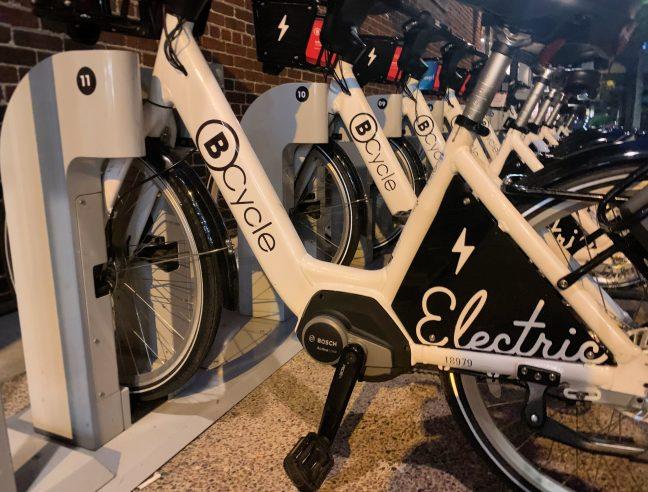The University of Wisconsin has maintained its platinum-level Bicycle Friendly University status accredited by the League of American Bicyclists since 2019, according to Transportation Services Commuter Solutions Manager at UW Dar Ward.
Since achieving platinum certification in 2019, UW has added 3,000 more bike parking spaces, bringing the total on campus to 16,540, according to Ward. The university is also currently in the design phase for improving the Howard Temin Lakeshore Path bypass around the Limnology Building. The current split path design forces bikers and pedestrians to take separate routes, which the university hopes to address through the planned upgrades.
UW’s goal is to reduce the amount of single-occupancy vehicle transport to campus, Ward said. It is also UW’s goal to achieve the highest possible rating that the League of American Bicyclists gives.
Madison is also a platinum-certified city, accredited by the League of American Bicyclists. The city was first certified in 2015 and was recertified in 2019. Madison Bikes Board of Directors member Robbie Weber said their organizations helps advocate for better bike infrastructure in Madison.
“People of all backgrounds and income levels should feel comfortable biking anywhere in the city, not just in the downtown, not just on bike paths, not just on sort of designated bike routes,” Webber said. “We want it to be a city where everyone is welcome to bike wherever they need to go.”
The leaders of Madison Bikes are invited to city committee meetings on bike infrastructure for their input. Webber and Harald Kliems, President of the Madison Bikes Board of Directors, both serve on the Transportation Commission of the City of Madison.
In good weather, 11% of undergraduate students, 17% of UW faculty and staff and 6% of UW hospital employees bicycle to campus, according to the 2023 Biennial Transportation Survey.
UW is in a preliminary stages of a study to extend the Campus Drive path from the School of Veterinary Medicine to Babcock Hall. UW is also in the early stages of planning a possible extension of the Southwest Commuter Path to Park Street, Ward said.
“The city has done a lot of really great stuff to make Madison really bike friendly, but we’ve done the easy thing and the next steps are going to be harder,” Webber said. “There’s going to be a lot of resistance, because it’s going to be questioning and overturning the current paradigm of transportation, which is everybody drives everywhere.”
Students can get involved with bicycle projects at UW through the Associated Students of Madison Student Transportation Board, Webber said.


